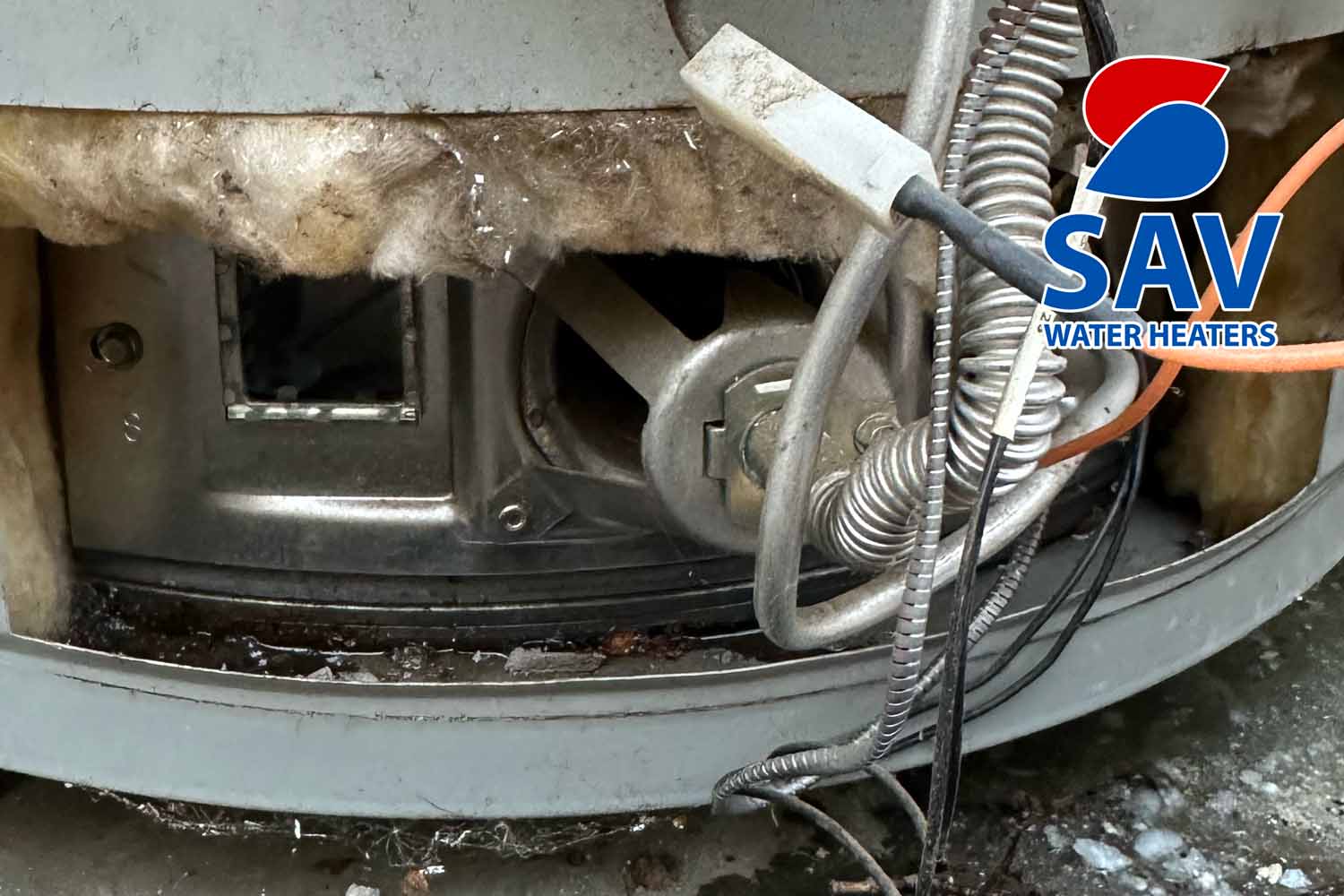As someone who has replaced and repaired hundreds of leaking water heaters over the years, I can tell you firsthand that water heater leaks are a common issue, but they are also preventable. Whether it's a slight drip or a major flood, understanding the causes of water heater leaks can save you from expensive repairs or even damage to your home. In this article, I'll cover the most common causes of water heater leaks, how to identify them, and what you can do to fix or prevent them.
 Common Causes of Water Heater Leaks
Common Causes of Water Heater Leaks
1. Sediment Buildup
Sediment buildup is one of the most common reasons for water heater leaks. Over time, minerals from hard water accumulate at the bottom of your water heater’s tank, especially in areas with hard water. This sediment not only reduces the efficiency of your heater but also leads to corrosion. Corrosion can cause small cracks and leaks in the tank.
Solution: Regular maintenance is key. Flushing your water heater at least once a year can help prevent sediment buildup. In some cases, especially if the heater is older, the tank may have deteriorated beyond repair, requiring a full replacement.
2. Corrosion of the Tank
Another major cause of leaks is the corrosion of the tank. Water heaters are typically made from steel, and steel is susceptible to rust over time. Even with an anode rod (which is designed to prevent rust), the tank can still rust over the years, leading to leaks.
Solution: If you notice rust or corrosion on your tank, it’s a sign that the water heater is reaching the end of its lifespan. Rusty water coming out of your taps is another indicator. In this case, replacing the water heater is often the only viable solution.
3. Leaking Drain Valve
The drain valve is located at the bottom of the tank and is used for maintenance tasks like flushing the water heater. If this valve becomes loose or wears out over time, it can cause leaks.
Solution: Check if the drain valve is tightly closed. If tightening it doesn’t stop the leak, you may need to replace the valve. A professional plumber can easily handle this water heater repair.
4. Faulty Temperature & Pressure (T&P) Relief Valve
The T&P relief valve is a critical safety feature that releases water if the pressure inside the tank gets too high. If this valve is faulty, it can leak or fail to operate correctly, leading to dangerous pressure levels inside the tank.
Solution: The T&P valve may need to be replaced if it's leaking. You should also have a professional check whether your water heater is overheating or has excessive pressure, which could indicate a more serious problem.
5. Loose Inlet/Outlet Connections
Your water heater has inlet and outlet pipes that allow water to flow into and out of the tank. Over time, the connections between these pipes and the heater can become loose, resulting in leaks.
Solution: This is often an easy fix—tightening the connections can stop the leak. However, if the pipes or connections are worn out or corroded, they may need to be replaced.
6. Leaking From the Bottom of the Tank
If water is leaking from the bottom of the tank, it’s often a sign that the internal structure of the tank has been compromised. This is usually the result of sediment buildup or age-related deterioration of the tank.
Solution: Unfortunately, once a tank starts leaking from the bottom, it’s usually a sign that the entire unit needs to be replaced.
How to Prevent Water Heater Leaks
While some water heater leaks are inevitable due to aging, there are several steps you can take to prolong the lifespan of your water heater and prevent leaks:
- Annual Flushing: As mentioned earlier, flushing the tank once a year can prevent sediment buildup.
- Regular Maintenance: Have a professional inspect your water heater at least once a year. This can help catch issues like loose valves, faulty pressure relief valves, and early signs of rust before they become serious problems.
- Install a Water Softener: If you live in an area with hard water, a water softener installation can help reduce mineral buildup in your tank, extending its lifespan.
- Check the Anode Rod: The anode rod is a sacrificial metal rod inside the tank that prevents rust. Over time, this rod will corrode and need to be replaced. Regularly inspecting and replacing the anode rod can significantly extend the life of your water heater.
When to Replace Your Water Heater
If your water heater is over 10 years old, it might be time to consider replacing it, especially if you’re experiencing leaks. As a rule of thumb, most water heaters last between 8-12 years, but regular maintenance can help extend their life. If your water heater is constantly leaking or requires frequent repairs, replacing it might be more cost-effective in the long run.
Conclusion
A leaking water heater is never a good sign, but with proper maintenance and timely repairs, you can extend the life of your unit and avoid costly damage to your home. If you notice any of the signs mentioned above, it’s best to act quickly. In many cases, simple fixes like tightening a valve or flushing the tank can prevent further issues. However, if your water heater is older or showing signs of serious damage, water heater replacing it might be the best option. Always consult a professional if you’re unsure about how to handle your water heater leak.